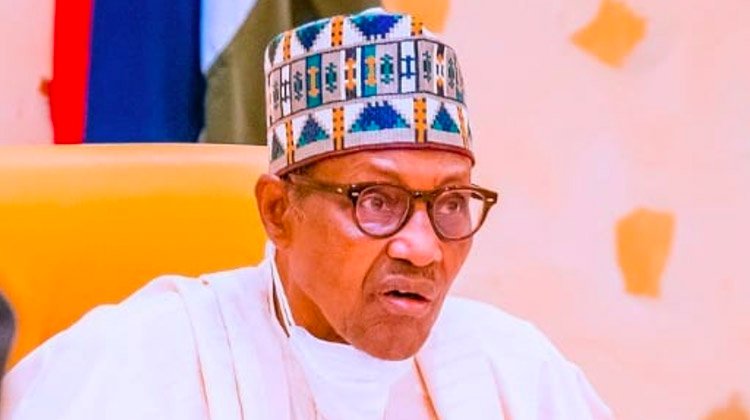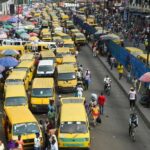
NIGERIA’S unbridled lust for debts has reached a crisis point with the country settling on the World Bank’s Top 10 International Development Association borrowers’ list. The prognosis is frightening and portends dire consequences unless the President, Major General Muhammadu Buhari (retd.), and the state governors restrain their fiscal indiscipline.
The World Bank Fiscal Year 2021 audited financial statements, known as the ‘IDA Financial Statement,’ showed that Nigeria ranked fifth on the list with $11.7 billion (IDA) debt stock as of June 30, 2021. However, the newly released World Bank Fiscal Year 2022 audited financial statements showed that Nigeria has moved to fourth on the list, with $13 billion as of June 30, 2022.
Accumulating about $1.3 billion IDA debt within a fiscal year, the country took over the fourth top debtor position from Vietnam. Currently, over 90 per cent of all federal public revenue is spent on debt servicing, a recipe for disaster.
Nigeria is on a fiscal cliff. With debt servicing exceeding retained revenue by as much as N310 billion in the first four months of 2022, the debts are clearly unsustainable. The aggregate expenditure for 2022 was estimated at N17.32 trillion, with a pro rata spending target of N5.77 trillion at the end of April.
“The actual spending as of April 30 was N4.72 trillion. Of this amount, N1.94 trillion was for debt service, and N1.26 trillion was for personnel costs, including pensions,” said the Minister of Finance, Budget and Planning, Zainab Ahmed, quoting the Medium Expenditure and Fiscal Strategy Paper.
The binge is scary: the government has been borrowing to pay salaries from the Central Bank through ‘Ways and Means,’ printing money at a record pace. Meant normally for emergencies, the Buhari regime has converted it to its ATM, which it raids indiscriminately. Externally, it taps all available credit, including potentially lethal non-structured Chinese loans.
Latest figures indicate that total borrowing from the CBN rose from N17.46 trillion as of December 2021 to N19.01 trillion by April 2022, an increase of N1.55 trillion within four months, says the CBN. The World Bank warned again on Wednesday that Nigeria faced an existential threat, citing among others, the N2.45 trillion the government borrowed from the CBN in six months.
The country’s total public debt stock stood at N41.60 trillion as of March 2022, according to the Debt Management Office. This only includes the debts of the Federal Government, the 36 state governments, and the Federal Capital Territory.
In a report titled, ‘The perils of deficit monetisation in Nigeria’ in 2021, London-based Capital Economics noted that over the past six years, on average, 55 per cent of Nigeria’s annual budget shortfalls were financed by the CBN. “Many of the problems plaguing Nigeria’s economy – from high inflation to a persistently overvalued currency – are tied to the government’s sustained reliance on the central bank to cover fiscal financing gaps,” it said.
The World Bank in November 2021 warned the government against financing deficits by borrowing from the CBN through the ‘Ways and Means,’ saying this puts pressure on the country’s expenditures, including increasing the cost of debt servicing.
Frighteningly, it is not only the central government that is indebted, but the states are also borrowing at an alarming rate and like the central government, without any signature public infrastructure project to show.
Instead of taking loans for critical projects, the government should liberalise the railways and ports and privatise all state-owned corporations in the oil and gas sector. Holding on to the loss-making refineries, depots, pipelines, and the retail outlets is wasteful, inefficient and constrains the economy. It stifles investments and job creation. Buhari should privatise them before his tenure ends. Pouring money into the doomed Air Nigeria project is also counter-productive.
The regime has failed to harness these and other low-hanging revenue opportunities, choosing rather to deplete fiscal buffers. From $35.7 million in June, the Excess Crude Account now has only $376,655.
Buhari should halt the binge and reverse the country’s precipitous credit rating. Nigeria’s sale of $4 billion worth of Eurobonds last September was criticised by economists for worsening the country’s fragile debt position with borrowings unlikely to be put to productive long-term uses. Borrowing in foreign currency in the context of a depreciating naira increases the economy’s risk exposure because repayment is made in foreign currencies. Inflation has also eroded the value of the naira, significantly reducing the purchasing power of citizens and driving millions into poverty and destitution. The need for a policy change is ever more imperative.
The states should cut costs, invest in rural and basic infrastructure, and devise self-sustaining sub-national economic policies to attract investments.
With the energy market in turmoil, inflation surged to 18.6 per cent in June, up from 17.71 per cent in May. It was the fifth consecutive rise in five months and the highest in 65 months.
The oil and gas sector is in chaos. The opaque petrol subsidy bill may reach N6 trillion this year as crude prices rise, and the naira continues its free fall. Crude oil theft is on an industrial scale, amounting to losses of $1.9 billion monthly, according to officials. An average of 400,000 barrels of crude is stolen daily, says the Minister of State for Petroleum Resources. With this, Nigeria has been falling short of its OPEC production quota of 1.83mbpd. Gas supply – for industrial use and cooking gas – has been hit by prohibitive prices too.
Compounding its woes, the country is unable to profit from higher oil prices arising from the Russia-Ukraine war to plug its revenue effusion and meet fiscal obligations. The Nigerian Economic Summit Group and Nigerian Employers’ Consultative Association warned recently that the economy is on the brink, battered by rising debt and repayment obligations, inflation, extensive insecurity, and the foreign exchange crisis.
The President and the 36 state governors must retrieve the nation from the debt trap, stop waste and pare public spending, execute transformative economic ideas, and tap natural resources to stimulate production, job creation, and exports.





